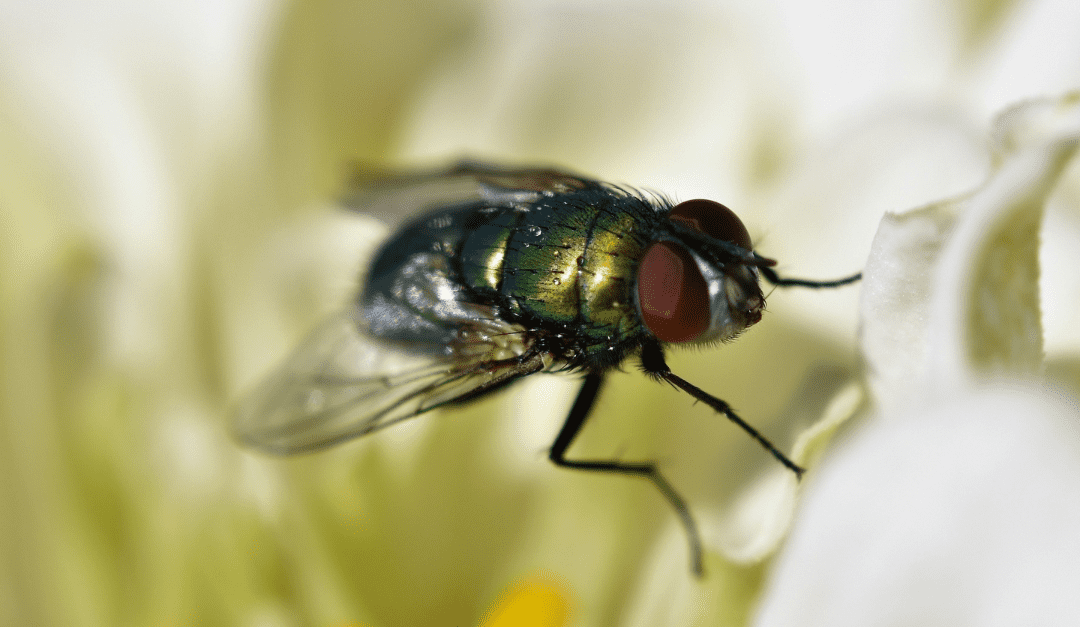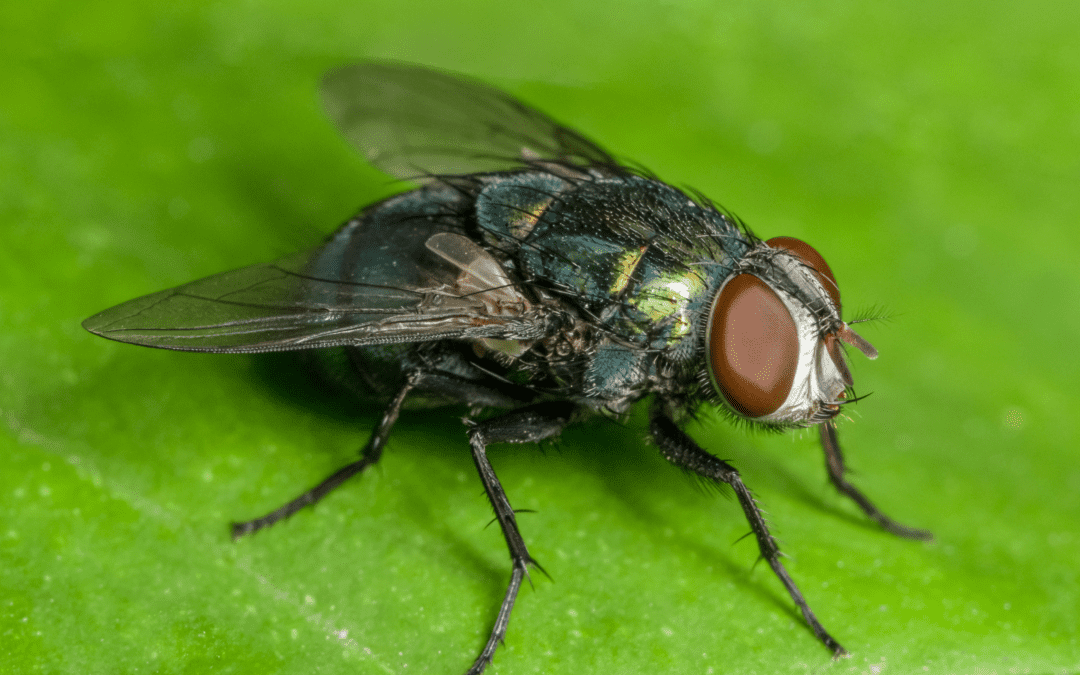READY TO GET STARTED?
REQUEST A FREE ESTIMATE
Fill out the form below or call (336) 226-1448 for a free, no-obligation estimate.

Flies are one of the most common pests found in homes. They are not only annoying but can also carry harmful bacteria and diseases. Fortunately, there are several things you can do to prevent them from entering your home in the first place. Let’s discuss three different types of flies you might find in your North Carolina home and some tips on how to prevent them.
House flies are the most common type of fly found in homes, hence the name. These pests are typically gray in color and measure around 1/4 inch in length. They are attracted to rotting food, garbage, and other organic waste, and they can carry diseases like salmonella and E. coli.
To prevent house flies from entering your home, it’s important to keep your kitchen and living areas clean and free of food waste. Keep your garbage cans tightly sealed and dispose of trash regularly. Make sure to clean up any spills or crumbs immediately and avoid leaving food out on counters or tables.
Fruit flies are small, brownish-yellow flies that measure around 1/8 inch in length. They are commonly found in kitchens and are attracted to ripe or rotting fruit and vegetables. These pests are not harmful to humans, but they can be very annoying.
To prevent fruit flies from infesting your home, it’s important to keep your fruit and vegetables stored in the refrigerator or in sealed containers. Be sure to dispose of any overripe or rotting produce and keep your kitchen clean and free of spills and crumbs.
Drain flies, also known as moth flies, are small, black flies that measure around 1/8 inch in length. They are commonly found in bathrooms and kitchens, and they are attracted to damp, organic matter like hair, soap, and grease. Drain flies can carry harmful bacteria, so it’s important to get rid of them as soon as possible.
To prevent drain flies from taking over your home, it’s important to keep your drains clean and clear. You can do this by pouring a mixture of baking soda and vinegar down your drains, followed by hot water. Avoid pouring grease or oil down your drains, and fix any leaks or drips that may be contributing to excess moisture.
If you begin to notice flies in your home, be sure to take action quickly to get rid of them by calling your local pest control company for a free inspection.

Household pests are any undesired animal that has a history of living, invading, causing damage to, eating food from, acting as a disease vector for, or causing any other harm to a human habitat. While many are just considered a nuisance, some household pests can become dangerous as they pose a risk to health, property, and lifestyle. Also, household pests aren’t just limited to insects. They include arachnids, rodents, and wildlife.
While household pests can be found year-round, some are more common in the summer months. Here are four of the most common summer pests and how you can prevent them.
Mosquito season peaks during the summer months. Mosquitoes are able to reproduce in large numbers due to the warm weather and humid environments that accelerate their life cycle. If you have standing water on your property, you will most likely see mosquitoes since this is where they lay their eggs. Mosquitoes can be dangerous to humans as they carry pathogens that can cause serious diseases such as Zika and West Nile virus.
Mosquitoes can be prevented by:
Ants hibernate in the winter and come out in full force during the summer. Ants are usually seen indoors during the summer because they’re searching for food and water as these can become scarce for them. They are also building up their reserves for the fall and winter months.
Ants can be prevented by:
Termite swarming season is in the spring, but these newly established colonies grow exponentially in the summer. Termites can go long periods of time undetected. This allows them to cause significant damage to your home. It’s important to keep an eye out for signs of termites so you’re able to catch them early.
Termites can be prevented by:
Flies invade your home in the summer months to escape the heat. While they only reproduce during the hotter months, getting indoors allows them to do so even more prolifically.
Flies can be prevented by:
Don’t let these common pests ruin your summer. If you have a problem with any of these pests, contact your local pest control company. They will be able to help eliminate them safely and prevent them going forward.